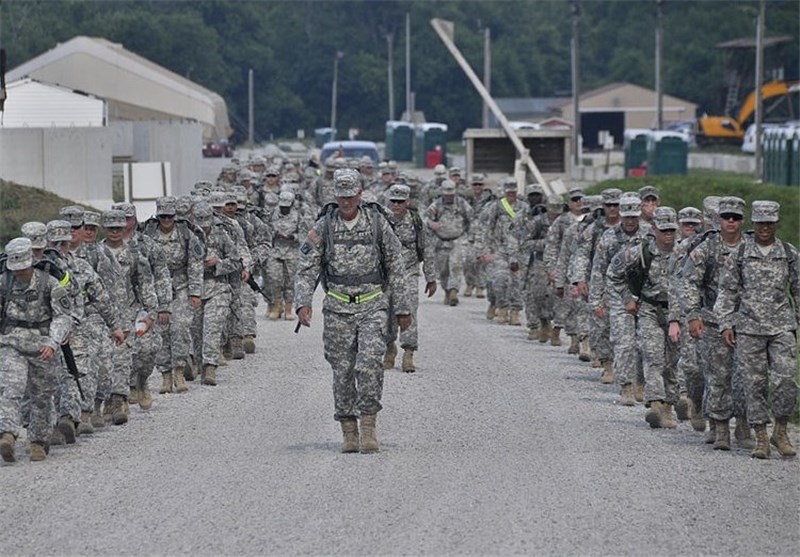Speaking in an interview with the website of the Strategic Council on Foreign Relations, Hussein Ajorloo said: Recently, there have been reports about transfer of part of the US Middle East forces, especially combat troops, as well as strengthening of the US military base in Jordan. This has coincided with the King of Jordan’s visit to the United States and his meeting with Joe Biden, as the first leader of the Arab world, and the warm welcome accorded to him by the White House. At the same time, there are also reports that Iraq’s relations with Jordan and Egypt are being pursued in the US-sponsored New Shaam (Levant) project.
In response to the question that what has strengthened Jordan’s position as a military base, as well as its centrality in US strategic and political approaches, Ajorloo said: Jordan has long been a stronghold of the Western bloc in the West Asian region and it seems that in President Joe Biden’s Middle East strategy, it has also a special place.
The expert on the Middle East affairs referred to several reasons for Jordan’s important to the United States, adding: The first is the specific geopolitics of Jordan as the country is located in the central region of the Shamat complex, most of which is desert. The Hashemi dynasty’s rule over it, as well as their special connection to the Western camp, especially the United States, has turned Jordan’s geopolitics into a special position as such that the Hashemi dynasty has been able to dominate its geopolitics by creating a powerful political system with a strong army and security forces, resulting in Jordan’s relative security in the turbulent region of West Asia.
According to Ajorloo, the transfer of troops into Jordan while strengthen Jordan’s geopolitical position could provide a good coverage for the US troops in West Asia; in a way that both protects those forces from the onslaught of anti-US forces in the region and allows them to use Jordan’s geopolitical position to fulfill US commitments to its allies in an emergency situation.
The expert on the Middle East Affairs, cited another reason for Jordan’s importance to the United States as the issue of Israel’s security and continued: With the strategic drop in the price of oil which has been emphasized by many international observers, the only factor driving US forces in the West Asian region is the US commitment to the Zionist regime to maintain its security. Presence of the US forces in Jordan and strengthening of American bases in that country can be considered as one of the US strategies in its regional policies to maintain security of the Zionist regime. Presence of the US forces in east of the Zionist regime’s borders can be considered as creating a buffer zone between actors such as Syria and Iraq in line with maintaining security of the Israeli regime.
He cited reduction of casualties among US forces in West Asia as the third factor, saying: With the strengthening of the position of anti-US forces in the region, security of American forces stationed in the region has been severely challenged to the extent that all over West Asia, from the Persian Gulf to Turkey and to the Red Sea, those forces are within the reach of anti-American forces in the region. Washington seems to be trying to maintain its manpower by taking advantage of the security situation in Jordan and reducing the activity of anti-US forces in the region.”
The Middle East expert also points to the issue of changing US military-security-political policy to US security-political policy as another factor, saying: “It seeks to change military-security-political policy to security-political policy, or in other words, with a political agenda, it seeks to achieve the desired order of its regions.
The expert on the Middle East affairs also pointed to the shift in the US military-security-political policy to the security-political policy as another factor, saying: With regard to the slogans and approaches of the Biden administration and adoption of policies such as withdrawal of troops from Afghanistan and Iraq, it seeks to change military-security-political policy to security-political policy, or in other words, with a political agenda, it seeks to achieve its desired regional order.
Ajorloo continued: The United States is trying to maintain its desired regional order by maintaining a small military force elsewhere.
The expert on the Middle East affairs said that position of some countries, such as Jordan, which is a country aligned with the United States, will be strengthened in this area, adding: Jordan could be a place for political and security movements of Washington while maintaining a US military base, and implementing US order in West Asia with the initiatives considered by the US.
According to Ajorloo, for example, we can mention the initiative of the New Shaam project, which somehow helps to establish the desired US order in the region through transportation and energy corridors.
He continued: Jordan’s neighborhood with Syria can also bring Syria closer to the desired US goals in the future through political initiatives.
In conclusion the expert said: Although the United States seeks to reduce its military presence and spending, it tries to maintain security of the Zionist regime and fulfill its regional obligations and continue to pursue its desired order in the region and, with a political agenda and consensus building through political and security regimes, weaken and restrain its regional and international rivals in West Asia and given Jordan’s political approach and geopolitical position, the country will be of particular importance in this new White House strategy.










0 Comments